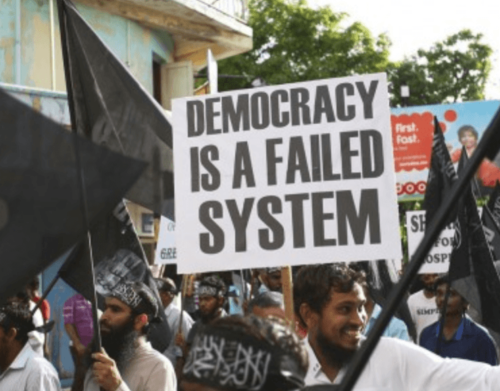Earlier this year, William Davies published a book called Nervous States: Democracy and the Decline of Reason. The book’s about a number of things, but I want to focus on one of them. That’s the declining trust in democratic institutions among Americans. But this declining trust isn’t consistent across institutions. It’s unevenly distributed.
So which ones do Americans trust and distrust? We see declining trust in the media and in elected representatives above all. And we see the least declining trust in doctors, nurses, the military, and (perhaps) the police.
Let’s speculate a bit about all this.
Pew and Edelman
Davies cites Pew Research and the Edelman Trust Barometer. This is a regular survey, and its more recent results show even further localization of trust. It’s worth checking out, particularly for its business results.
Indirect and Direct Representation
Americans don’t trust others to represent their interests. I think that shines through. But they do trust direct democracy and immediate forms of decision making. Americans don’t trust Congress or business executives, but they do trust the plebiscite, among other forms of direct democracy.
Why? One thought is this. Americans don’t think others look out for them, even when those others are ‘experts’. Perhaps especially when those others claim expertise. Members of the press and Congress certainly claim expertise. It’s key to their claim to legitimacy.
As we enter the presidential cycle, there’s a tension. Hillary Clinton led with an appeal to expertise in 2016. And Elizabeth Warren does the same in 2020. To a lesser extent, so does Joe Biden. It’s no surprise, then, Warren does best with voters, e.g., wealthy white progressives, who value technical expertise and worst with voters, e.g., working class and/or non-white voters, who are most skeptical of claims to expertise. Were she to win the nomination, Warren’s struggles would look like Clinton’s. In at least this one respect.
Technology and Protection
Two things stand out to me. First, there’s the issue of technology. And so, let’s consider declining trust in light of technological change. We could talk all day about the cultural influences of the Internet and social media. But one thing they obviously do is promote immediate forms of engagement. We have our information and communication handy. We book our own flights, make our own hotel reservations, order a car, talk to our friends, etc., from a device we carry in our pockets. And we expect immediate action on these things.
So that’s different from how things were, say, 30 years ago.
Second, there’s the issue of protection. When I look at the institutions people still trust, I notice they’re in the business of protecting us. Doctors and nurses fix our health, and they keep bad things from striking us down. Maybe we excuse the appeal expertise when it’s obviously in our service. And while plenty of people have figured out the military and police aren’t really protecting us, many haven’t. Many people think soldiers and cops are looking out for them.
A Side Note on Trump
There’s also the role of Trump and, perhaps, Trumpism. But I don’t know whether the Trump presidency is cause or effect. Perhaps it’s both. We know Trump has a certain pattern of speaking, a pattern of undermining the truth. Maybe declining trust allowed him to do this, and maybe doing it drives the declining trust. Again, perhaps it’s both. Whichever it is, I think the phenomenon stretches far beyond Trump, though we’ll see it in reference to him if the Democrats impeach him.
Alternative Institutions
We like building alternative institutions on the left. At least, it’s a part of what we’ve always done. And so, I think there are lessons to learn in light of that. We have to make use of the immediacy of the Internet and social media. How can we use these things to, say, engage in quick discussion and decision making in a way that preserves democratic openness and inclusion? What does a leftist plebiscite look like?
Protection is maybe more difficult. What does a free and democratic system of protection even look like? Obviously not like the military or like the American law enforcement system. But what? What’s the alternative? Is it a decentralized community system? If so, how do we establish it in a segregated society full of local prejudice?
I think these are the right sorts of questions. I’m much less confident in answering them.
